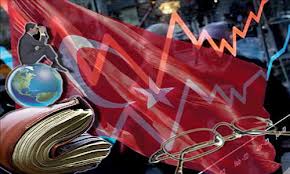Chaos Threatens World Economy—and Obama
Posted by John Cassidy, The New Yorker
By this stage, you may be getting a little tired of reading about the Greeks and their economic woes. Don’t feel too badly about it: most Western Europeans agree with you. From Galway to Warsaw, there’s a general feeling that the world would be a better place if Greece pulled an Argentina—defaulted on its debts, returned to the drachma, and quit the European community, at least for now.
With politics in Athens reduced to paralysis following Sunday’s elections, which saw parties of the left and right robbing the coalition government of its majority, a key German policymaker yesterday came close to saying all this officially. “Greece needs to be aware that there is no alternative to the agreed reform program if it wants to remain a member of the eurozone,” said Jörg Asmussen, a member of the governing board of the European Central Bank, who formerly served as Germany’s deputy finance minister. In today’s Financial Times, the sub-head on the main editorial says: “Europe should prepare for Greek exit from eurozone.”
Unfortunately, it’s not as simple as that. Rather than making a clear break with Europe, Greece seems set for weeks, and possibly months, of political chaos, and the eventual outcome of this process is very difficult to predict. That’s bad news for the Greeks, and it’s bad news for the rest of us, too—President Obama included. Just when Europe appeared to have found a way to muddle through its debt crisis, Sunday’s elections have raised the threat of more upheaval in the financial markets, which is just what the global economy—and the U.S. economy in particular—doesn’t need.
On the face of things, it seems silly to suggest that what happens in a country that is five thousand miles away and has just eleven million people—half the population of the New York metropolitan area—could have an impact on the mighty U.S. economy. But if we’ve learned (or relearned) one thing in the past few years, it is that modern economies are closely interconnected. What happens to Greece matters for the rest of Europe, and what happens to Europe matters for the rest of the world, us included. Contagion and the threat of contagion are facts of modern life.
Alexis Tsipras, the former anti-globalization protester who heads the left-wing Syriza party, which won seventeen per cent of the vote on Sunday, said yesterday that he wants Greece to remain part of the E.C. But he also wants his country to renounce its latest bailout agreement and to halt payment on its debts. Since Tsipras appears unwilling to compromise on these demands, he will almost certainly be unable to amass enough support from other parties to form a new government.
Once he fails in his efforts, the current coalition, which is made up of the center-right New Democracy and the center-left Pasok, will try to negotiate with various small parties in an attempt to restore its majority and continue with the austerity program. But the most likely outcome is that there will be a repeat election next month, when anything could happen. Perhaps voters will give the coalition another chance. Perhaps, they will give even more support to the extremist parties, including even the neo-Fascist Golden Dawn, which received seven per cent of Sunday’s vote.
The international antagonism towards Greece is a bit unfair to ordinary Greeks, who are paying the cost of decades of cronyism, corruption, and political dysfunction. With unemployment at more than twenty per cent, and many people who still have a job facing wage cuts, it is hardly surprising that so many voted against a government that agreed upon further austerity measures as part of the country’s latest bailout by international creditors. But it’s equally unsurprising that people in other countries, many of whom are also suffering the effects of austerity policies, should demand that Greece follow through on agreements it has signed.
The whole episode underscores the need for a European growth strategy to supplement budget cuts and structural reforms. With the Germans blocking any idea of a fiscal stimulus—a stance they are unlikely to alter anytime soon, despite the election of François Hollande in France—the obvious way out is for the European Central Bank to engineer a large-scale monetary expansion and a devaluation of the euro, which would give a boost to European exporters. At $1.30, the euro is still grossly overvalued given the continent’s chronic problems. But Mario Draghi, the Italian who heads the central bank, remains hemmed in by the conservatives on its board of the E.C.B. and by his own caution. Late last year, Draghi provided the European economy with a temporary respite by announcing that the E.C.B. would provide large amounts of cheap loans to stricken banks. But since then, he has been sitting on his hands.
Thus, we are left with chronic uncertainty, which is often a recipe for volatility in the financial markets. By itself, the fall in the U.S. stock market over the past couple of days is little to worry about. Much more concerning is the renewed threat of a European banking crisis, which could spill across the Atlantic. If the perception spreads that the Greeks are about to abandon the euro, the markets will start speculating about whether other heavily indebted countries—Ireland, Portugal, Spain—could follow the same route. They almost certainly won’t. Still, there could easily be a run on the banks in these countries as wealthy depositors seek to head off the threat of a devaluation by shifting their savings to euro accounts in countries like Germany and France. The mere threat of this happening is already hitting European bank shares, which have fallen sharply in the past couple of days.
What can the Obama Administration do about all this? Not very much. Through its influence at the Fed, it could encourage Draghi and the E.C.B. to act more quickly. And through its influence at the International Monetary Fund, which is one of Greece’s big creditors, it could encourage a bit of flexibility in discussions with whatever government emerges in Athens. Despite all the criticisms of Greece’s backsliding, some of them justified, the country has made substantial progress in the past couple of years in overhauling its tax system, cutting government spending, and repairing its public finances. (Since 2010, its budget deficit as a percentage of G.D.P. has come down from more than fifteen per cent to less than eight per cent.)
Ultimately, though, Greeks will have to decide their own fate. (The F.T. editorial I cited earlier got that bit right.) Do they want to throw off the yoke of austerity and break with Europe, with all the risks such a policy would entail? Or do they want to suck it up for another few years in the hope that things will turn around. Opinion polls suggest that about seven in ten Greeks want to stay in the eurozone. But that is also about how many of them voted against the coalition government. Until this ambivalence is resolved, the uncertainty in the markets, and the threat of contagion, will remain. Which—I’m finally getting back to the local angle—is another bit of worrying news for the White House.
Photograph by Louisa Gouliamakil/AFP/Getty Images.



















